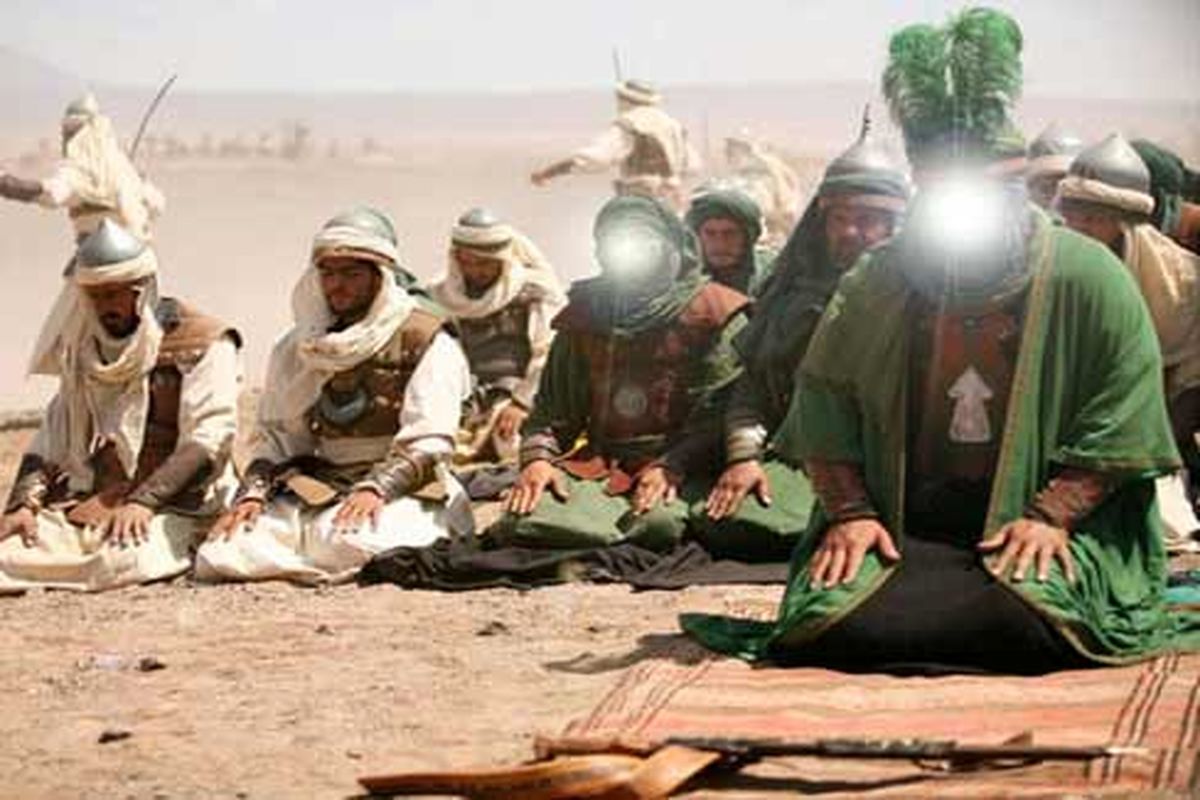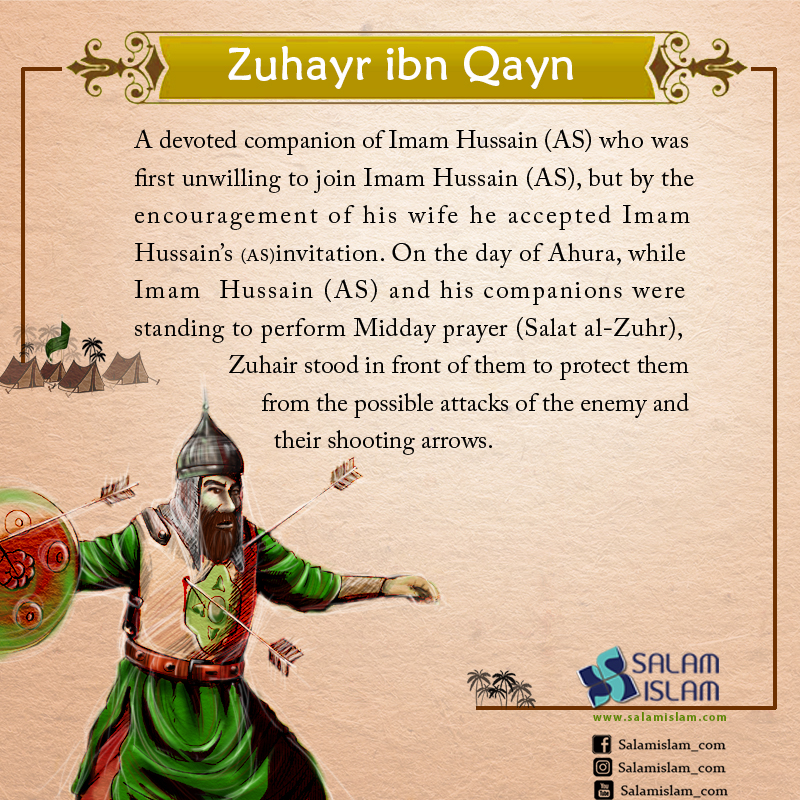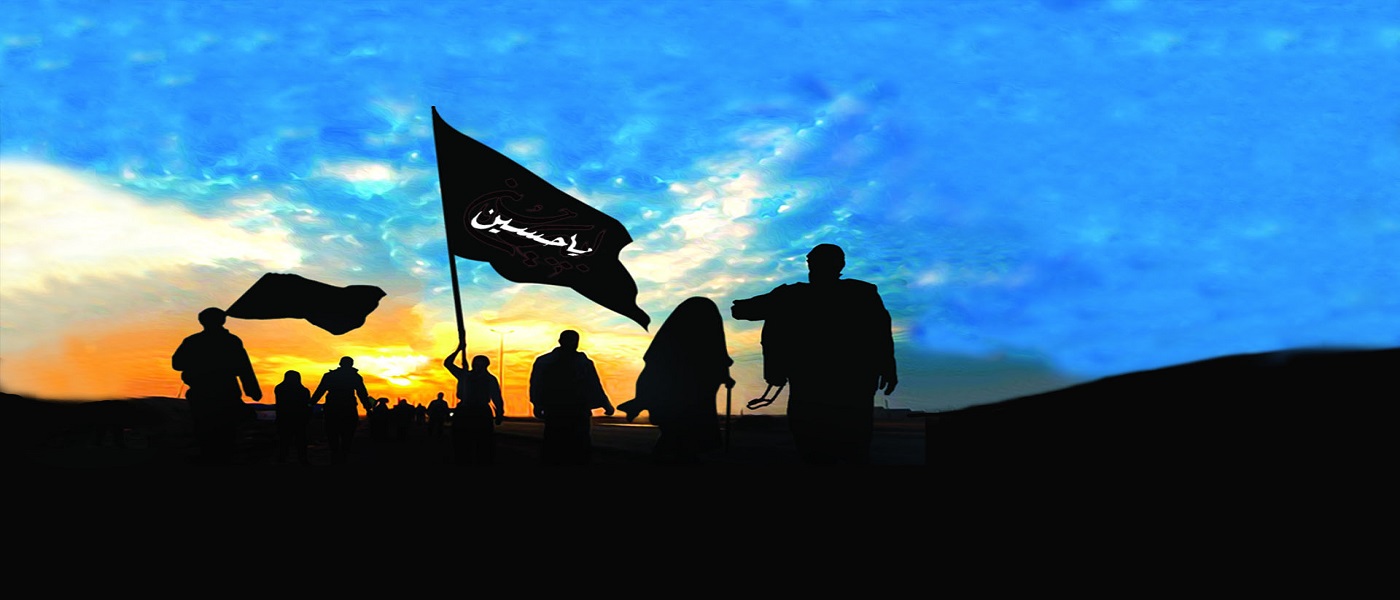

8 Habits of a Productive Muslim
If you feel you are not doing enough in your life and need to be a more productive Muslim, here we suggest some tips on planning a more productive lifestyle based on Islamic teachings. But before starting to review the tips on how to be a more productive Muslim, we should answer a "WHY" question? "Why do we want to or have to be more productive?"
Merging into life routines can be hugely devastating for human beings. At the same time, many may not even recognize the fact that they are gradually being merged into their habits, and one day, they look back and look over their life, finding it all wasted. To avoid experiencing such hard and disappointing moments in life, Allah Almighty guides us through the Quran and the Islamic lifestyle provided in it.
Islam's View on Life
Allah (SWT) introduces the ultimate goal of human creation as worshipping Him; "I did not create the jinn and the humans except that they may worship Me." (51: 56)
However, it is essential for human beings to understand the meaning of worshipping Allah (SWT). If, by glorifying Him, Allah (SWT) meant that people should spend all their time praying and fasting, then there was no need for all the other rulings and laws that the Quran describes regarding human beings' daily life including social, economic, political, etc. issues.
The meaning of worshipping Allah (SWT) lies in the believers' understanding of the reason behind their behaviors and every single act and thought that they have; that is Allah Almighty's acceptance and satisfaction. It is crucial to keep in mind that worshipping Allah is not limited to praying and fasting, but every act of believers that is done in the way of gaining Allah's satisfaction is counted as worship. That is why He recommends that all our deeds and actions should have a divine tint; "The coloring of Allah, and who colors better than Allah? And Him do we worship." (2: 138)
Therefore, one can easily conclude that living an idle life is far from what Allah has expected from us. Allah (SWT) in the Quran encourages people not to waste even a single moment in their life when He says, "So when you are done, appoint, and supplicate your Lord." (94: 7 – 8)
The above verses show that for a more productive life, people should always have plans for their days, weeks, and years, so when they finish one task, they know what they should do next. Imam Musa al-Kazim (AS) says: "try that your daily time is divided into segments. One part for worshipping your Lord. One part for earning allowed (Halal) livelihood, a part for socializing with trustworthy friends, and another exclusively devoted to Lawful (Halal) pleasure with the family. [1]
We should still keep in mind that everything may not go exactly as we plan and not get disappointed if our plans do not go very well. Allah (SWT) says:
"Yet it may be that you dislike something, which is good for you, and it may be that you love something, which is bad for you, and Allah knows, and you do not know." (2: 216)
Therefore, keep a "to-do list" of your goals and plans for your years, months, weeks, and days. That will help you find less time in front of the TV, thinking that there is nothing else left to be done.
In the Quran, Allah counts some habits of those prosperous people. If we pay special attention to them, they help us have a more productive life.
1- Those Who "Avoid vain talk" (23: 3)
Vain talk does not necessarily apply to speaking to others. But any type of futile habit will take away one's prosperity, among which we can name unproductive use of social networks, useless friendships, ineffective discussions, etc.
2- Those Who are Humble; "The servants of the All-beneficent are those who walk humbly on the earth" (25: 63)
Being humble and putting effort into reaching a humble character helps us be free from all useless social conflicts. Many people in human history wasted their lives looking abnormally beautiful or earning huge wealth. While the real prosperity belongs to those who beautify their soul, "Felicitous is he who purifies himself, celebrates the Name of his Lord, and prays. But you prefer the life of this world, while the Hereafter is better and more lasting." (87: 14- 17)
3- Those who ", and when the ignorant address them, they say, 'Peace!'" (25: 63)
Many people pay a lot of attention to their conversations with other people. So much that after each party or gathering, their mind is so busy analyzing what others told them and find out if they meant to humiliate or disrespect them. This habit takes a lot of energy from a person and prevents him/her from being a productive person. Therefore, Allah (SWT) suggests that if one wants to be a real servant of Him, he/ she should ignore all the things that may take away his concentration in serving Allah (SWT).
4- Those who strive hard: "that nothing belongs to man except what he strives for" (53: 39)
There is nothing that people can not reach by their imagination and creativity. However, without effort and hard work, nothing is attainable. Through hard work, practice, and persistence human beings can gain what they plan for. Therefore, after planning for your life, and setting your goals that have a tint of God, you have to work hard and "… and once you are resolved, put your trust in Allah…" (3: 159)
5. Eating and Sleeping Habits of a Productive Muslim
Allah also orders people to be careful about the health of their body and soul at the same time when He provides them with sleeping habits: "Stand vigil through the night, except for a little [of it], a half, or reduce a little from that, or add to it, and recite the Quran in a measured tone." (73: 2- 4)
One may say that the above verses apply only to the Prophet (PBUH&HP), but whoever follows these habits will achieve high spiritual levels; "And keep vigil for a part of the night, as a supererogatory [devotion] for you. It may be that your Lord will raise you to a praiseworthy station." (17: 79) Studying the biography of great believers, one can realize that the night watch was one of the most explicit parts of their daily routine.
Allah (SWT) also orders people to watch what they eat, as eating habits have a significant effect on the human body and soul: "Let man consider his food" (80: 24) Having a healthy body and soul will help people to be more productive.
6. Reciting the Quran
One great habit that can help people have a more productive life, as recommended by Allah (SWT), is reciting the Quran: "…So recite as much of the Quran as is feasible. …" (73: 20)
Reading the Quran and contemplating over its stories, examples and even rulings can help us have a more creative and analytic mind, and this is aside from the miraculous impact that reciting the Quran has on human soul and body "We send down in the Quran that which is a cure and mercy for the faithful…" (17: 82)
7. A Productive Muslim Takes Practical steps
In the Quran, Allah (SWT) has always put faith beside practice, which shows the importance of taking action instead of being passive human beings: "By time! Man is indeed in loss, except those who have faith and do righteous deeds, and enjoin one another to [follow] the truth, and enjoin one another to patience." (103: 1- 3)
8. Remembering Death and Thinking of Hereafter
Imam Ali (AS), in his letter to his son, Imam Hasan (AS), says: "My son! Know that you were created for the Hereafter, not for this world, for extinction (in this world), not for permanence, and death, not for life. You are in an abode from which you must depart, in a place from which you acquire your provisions, and on a path to the Hereafter." [2]
It is vital to keep in mind that we are not going to live in this world forever. We are here for a short time, and we need to prepare for the real life as mentioned in the Quran: "The life of this world is nothing but diversion and play, but the abode of the Hereafter is indeed Life (itself), had they known!" (29:64). Therefore, if we live every moment of our life knowing that we are traveling to the real world any moment, then we will try our best to make the best out of our time, energy, and talents.
In sum, having a more productive life is a necessity for all Muslims, and to improve one's productivity, planning a life based on the Quran and Islamic teachings can be a great guideline.
References:
- Ibn Shu’bah ,Tuhaf al-Uqul, P. 409-410.
- Allamah Sharif Razi,Nahj al-Balaghah, letter 31.
Share This Article

The characteristics of Imam Hussain 's (AS) companions
When discussing the companions of Imam Hussain (AS), the most significant aspect to consider is their actions and decisions in specific circumstances where they had to make choices. While reading history, it might seem ordinary to us that when faced with oppression and injustice, any rational human being would stand against it. However, before making decisions, people need to be sure if their resistance is worthwhile.
Throughout history, many people fought and died for what they believed to be the truth, only to find out they were supporting evil.
In this text, we will delve into some of the most astonishing characteristics of the companions of Imam Hussain (AS) that made them so special in history.
Obedience
The outcome of faith is guidance:
“Whoever has faith in Allah, He guides his heart.” (64: 11)
However, this guidance is achievable through obedience:
“O you who have faith! Obey Allah and obey the Apostle and those vested with authority among you.” (4: 59)
The most vital trait of the companions of Imam Hussain (AS) was their faith and reliance on Allah, and their obedience to Him, His messenger, and their leader - Imam Hussain (AS).
On the night of Ashura, Imam Hussain (AS) gathered his companions and said “I release you from the allegiance and oath you’ve taken from me. The darkness of the night surrounds you, so break free from the turmoil hidden in the darkness waves. Then each of you may hold of the hand of my family members and disperse into the villages and cities until Allah grants you relief .” The companions, one by one, replied “By Allah! We shall not abandon you. In fact, we are ready to sacrifice our lives for yours. We shall defend you with our necks, faces and hands. We will fulfill our duty even if it costs our lives.” [1]

Distinguishing right from wrong
The situation in the year 61 AH during the battle of Karbala was perplexing. People had to differentiate between the truth among two groups both claiming to fight for Islam. Imam Hussain (AS) left Medina as he knew Yazid, the son and the successor of the late caliph, disregarded Islamic principles. However, since Yazid and his ministers presented themselves with an Islamic facade, it was challenging for ordinary people to discern the correct side. Consequently, most Muslims were deceived by their hypocritical behavior, or they were threatened by Yazid’s ministers due to fears of losing material gains, causing them to join Yazid’s army.
It this context, Yazid managed to amass of over thirty thousand soldiers, while only few individuals - less than a hundred – chose to stand with Imam Hussain (AS). This fact highlights the great wisdom and bravery of Imam Hussain’s (AS) companions, and this wisdom, as the Quran mentioned, arises from steadfast faith:
“O you who have faith! If you are wary of Allah, He shall appoint a criterion for you, and absolve you of your misdeeds...” (8:29)
The Arabic term translated as “criterion” in the above verse is Furqan. Furqan is the power to distinguish right from wrong, a type of wisdom and insight bestowed by Allah upon His pious servants, which is not dependent on knowledge, literacy, or information. [1]
Based on this criterion granted by Almighty Allah, the companions of Imam Hussain (AS), coming from diverse ages and social, cultural and religious backgrounds, were all able to differentiate between right from wrong. It is regrettable that only a few comprehend this distinction!
“… But most of them do not know the truth, and so they are disregardful.” (21: 24)
Detachment from the world
Even among the faithful, some chose not to oppose Imam Hussain (AS) in the battle of Karbala. They remained silent and withheld their support for the Imam. The status of these believers differs from those who sacrificed their possessions and lives for the sake of Allah (SWT). Allah says in the
Quran:
“Not equal are those of the faithful who sit back—excepting those who suffer from some disability—and those who wage jihad in the way of Allah with their possession and their persons. Allah has graced those who wage jihad with their possessions and their persons by a degree over those who sit back…” (4: 95)
Loving Allah (SWT) and Being Loved by Allah (SWT)
Allah describes the relationship between Him and His pious servants as a mutual bond of love, with Allah (SWT) being the first to express love. In a beautiful Quranic verse Allah portrays His faithful, courageous, and humble servants as individuals loved by Him:
“O you who have faith! Should any of you desert his religion, Allah will soon bring a people whom He loves and who love Him, [who will be] humble towards the faithful, stern towards the faithless, waging jihad in the way of Allah, not fearing the blame of any blamer. That is Allah’s grace, which He grants to whomever He wishes, and Allah is all-bounteous, all-knowing.” (5: 54)
This verse underscores that these individuals may face criticism and blame from due to their decisions, but it will not make them turn away from their spiritual path.
Sacrifice
Another important characteristic of Imam Hussain’s (AS) companions was their selfless sacrifice in upholding the religion and tradition of the Prophet (PBUH&HP). It takes a noble soul to make sacrifices for others, and even more so when sacrificing one’s life to preserve the religion of Allah (SWT). This is why in the loving relationship that the companions of Imam had with their Lord, they presented their body and soul in defending the truth.
“And among the people is he who sells his soul seeking the pleasure of Allah, and Allah is most kind to [His] servants.” (2:207)
References:
- Qummi, A. Nafassul Mahmoum
- Qara’ati, M. Tafseer-e Nour, vol. 3, p. 305
Read More

What is the Philosophy behind the Arbaeen Walk?
Muslims commemorate the fortieth day after the martyrdom of Imam Hussain (AS) and his companions, called Arbaeen, meaning the fortieth day in Arabic. They all gather around the city of Karbala and Imam Hussain’s (AS) shrine, mourning and lamenting the unfair and cruel war between his comrades and those of Yazid Ibn Muawiyah, which led into the death of those pure men and the bondage of their families.
This commemoration happens every year around the city of Karbala. Muslims begin to walk to Karbala from other towns. They gather together in groups to pray, and especially to mourn the martyrdom of Imam Hussain (AS).
This walk is a hard one. It takes at least three days and lots of energy and time. So, why do Muslims take that? What is the philosophy behind it?
To answer our questions, first, let’s have a review of the history behind this walk and then move to the other aspects of this commemoration.
1. What is the Arbaeen Walk?
The history of Arbaeen walk goes back to the first visitors of Imam Hussain (AS) after his death. On the day of Arbaeen, forty days after the tragic martyrdom of Imam Hussain (AS), Imam’s (AS) son, sister and the remaining members of his family and that of the other martyrs came back to Karbala to lament the death of their dear ones besides their graves.
Their next visitor was Jabir Ibn Abdullah Ansari on the year 61 AH. Visiting Imam Hussain’s (AS) shrine was a tradition in Shiite culture until a short period after Morteza Anasari’s became the religious reference (Marja’) of Shiite Muslims. It was then lessened for some years and then revived. Some other religious references (Marja’) kept this tradition alive among their followers, until the government of Saddam Hussain, which banned all religious Shiite traditions to be performed publically [1].
The tradition was revived after the fall of Saddam, and it is still to be continued.
2. Why on Foot?
Visiting the holy shrines and going on pilgrimages on foot is not something new or belonging to our age. It’s got a long history, and Adam did the first pilgrimage on his visit to Mecca [2]. It isn’t a tradition just among Muslims either. It is performed in other faiths and religions, too. For instance, Caesar made a vow to his God to go on a pilgrimage to the Dome of Rocks if he won the battle against the Empire of Persepolis (Iran). He performed his vow after his victory [3].
Pilgrimages are highly admired, and their act is seen as a way of getting closer to Allah by Imam Sadiq (AS). Visiting the holy shrines of the twelve Imams (AS) is even more praised, especially the sacred shrine of Imam Hussain (AS). Of course, it’s not these shrines themselves that are of value and importance, but the people who have been buried there. Thus, when one makes a pilgrimage toward these shrines, he/she finds the chance to think more about these great personalities who won Allah’s satisfaction and praise and were Muslims in the real sense of the word. So, in every step that a pilgrimage takes toward Imams' (AS) shrines, especially that of Imam Hussain (AS), he/she is getting closer to a source of spiritual blessing, bringing him/her thousands of virtues and wiping away thousands of vices from his/her mind and soul.
3. What is the Philosophy behind the Arbaeen Walk?
The Arbaeen pilgrimage is not merely a long walk. Instead, it is a kind of movement in which despite being in publics, pilgrims have their own private relationship with Allah and Imam Hussain (AS), which finds a new form of divine immaterial dependence and conformance. Thinking about the goals and the history behind the martyrdom of Imam Hussain (AS), the injustice and cruelty imposed on his family and the devotions of his faithful followers brings about many personal and social growth and improvements.
Meeting other Muslims, exchanging ideas, and making friendships with Muslims of the other countries is another social outcome of this pilgrimage. One finds out that they are not alone in their faith, and have friends all over the world. They may have differences, but they have one thing in common: Belief in Imam Hussain (AS) and his right cause.
The last and the most crucial point to mention this great gathering is it's a kind of preparation for the grand reappearance of Imam Mahdi (AS), the awaited savior among Muslims. The Arbaeen pilgrimage is to make the minds and souls ready for this great event. It is said that when Imam Mahdi (AS) reappears, he introduces himself as the son of Hussain (AS) [6], whose fame has reached many people through the Arbaeen Pilgrimage; one of the most significant religious gathering around the world, with the estimated number of 40,000,000 people participating in it, whose news is broadcasted all over the world [5].
References
- "The background of Arba'een rally/The importance of Najaf-Karbala rally from the scholar's viewpoint." Fars News. Archived from the original on 16 November 2015. Retrieved 4 October 2015.
- Hor Ameli, Muhammad Bin Hussain Vasayel-o-Shia, Vol 11, p 132
- Sobhani, Jafar The Light of Eternity p. 696
- Kamel-o-Ziyarat: Pp 183, 184 and 185
- Philipson, Alice (19 January 2015). "The ten largest gatherings in human history." The Telegraph. Archived from the original on 6 October 2015. Retrieved 3 October 2015.
- Khademi Shirazi, Mohammad Yad’e Mahdi P16, P132
Read More

